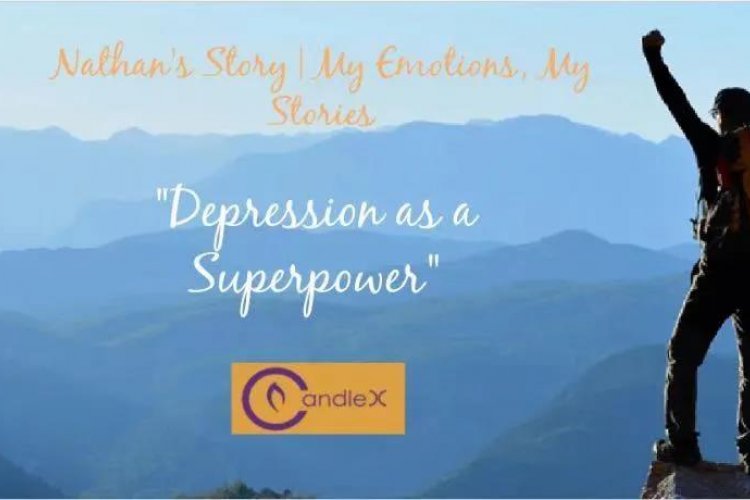Denis Vaughan of Lifeline China: "People Often Don’t Know Where to Turn to When They Need Help"
Who do you go to when you’re struggling with mental health? Who can you turn to when you’re in a crisis? Unfortunately, for those of us living in a country that’s foreign to us, too few of us have a solid answer to that question. That’s what inspired the founders of Lifeline, whose helpline serves the English language speaking communities of the country. The helpline offers free, confidential, and anonymous support services from 10am–10pm, 365 days a year.
The organization is well known in Shanghai, where they work hard to destigmatize conversations about mental health, though so far, few know their name outside of that city. Denis Vaughan, a former Beijinger who now works with Lifeline as a community outreach coordinator, aims to change that. He’s returning to the capital for a training and outreach program Saturday, May 29 to train future outreach volunteers – people who are passionate about advocating for mental health in their communities.
We spoke briefly with Vaughan about what he hopes to achieve in Beijing. If you find yourself interested in the training, then email outreach@lifelinechina.org with the subject line, “Beijing Outreach Training” and let them know why you want to become a volunteer. The training is free, but full-day attendance is required.
How did you get involved with mental health outreach? Has the work changed your perspective on your own wellness?
When I lived in Suzhou I had a friend with increasingly deteriorating mental health. It got to the point where I thought he was at risk of suicide and I felt out of my depth, unsure about how I could best support him because I struggled to find any local resources in Suzhou. Another friend of mine told me about Lifeline and I reached out to them and they were able to help point me in the right direction. I moved to Shanghai a few months later and at that time Lifeline also began an intake of new volunteers so I decided I wanted to give back. I had just finished my finance exams so I had a lot more spare time back in my life and I was happy to give it Lifeline, having benefited from the service myself first-hand.
Can you tell us about your expansion to Beijing? Why seek volunteers here and what else would you like to accomplish in the capital?
People often don’t know where to turn to when they need help. One of the most unfortunate things I’ve heard since joining Lifeline is people commenting “oh I didn’t know that service existed, I wish I did because there was a time that I needed it.” Or else they know of someone that died by suicide and they wonder if Lifeline’s service could have helped them. The benefit of Lifeline is that it’s completely free, anonymous, and confidential. You don’t need an appointment; you just pick up the phone. It really does provide immediate emotional support and can help save lives, but people in Beijing can’t call us if they don’t know about us. Raising awareness is crucial so that people know that Lifeline is out there if and when they need us.
We also want to ensure Lifeline is equipped with the most up-to-date referrals for Beijing-based resources and resource support in the surrounding areas. Having a local team that can attend community events, network, and fundraise are all essential elements that will improve the service we can provide to callers/chatters. Lifeline is 100% volunteer-based and we do not charge for the service so we depend on the public to keep our services going.
Lifeline has partnered with R U OK?. Has that helped your organization to achieve more effective outreach?
Absolutely. R U OK? is an Australian suicide prevention program that Lifeline partnered with and adapted for China because we saw the need for it in our community. Whilst Lifeline can be described as a crisis support helpline, R U OK? is a campaign that focuses on suicide prevention. Lifeline’s R U OK? program offers workshops where we teach people in the community the four steps to having a meaningful conversation so that they can support someone they care about long before that person even thinks about suicide. We also offer tailored workshops for schools and the workplace. These workshops are an essential part of our outreach efforts because it empowers people to look out for one another in their communities and stay connected and protected against suicide.
Besides volunteering for the helpline, are there any other ways people can get involved?
Yes, we are still looking for team members to join our training for the new Beijing Community Outreach team on May 29. If you are interested in becoming a mental health advocate for the English-speaking community in Beijing and China, you can email your CV to outreach@lifelinechina.org along with a short personal statement explaining what your motivation is for attending this outreach training.
You can also check out more info on our website www.lifelinechina.org which contains many valuable R U OK? resources including free lesson plans for educators. If you believe in Lifeline’s mission and want to support Lifeline through fundraising or direct donations you can reach out to partnerships@lifelinechina.org
Lifeline China training will be held Saturday, May 29 from 10am-4.40pm in Chaoyang District. Interested parties should email outreach@lifelinechina.org with the subject line, “Beijing Outreach Training” and let them know why you want to become a volunteer.
READ: Penny For Your Thoughts? Accessing Mental Health in Beijing
Image: UNSPLASH
Related stories :
Comments
New comments are displayed first.Comments
![]() Sikaote
Submitted by Guest on Sun, 05/23/2021 - 18:18 Permalink
Sikaote
Submitted by Guest on Sun, 05/23/2021 - 18:18 Permalink
Re: Denis Vaughan of Lifeline China: "People Often Don’t Know...
"Denis Vaughan of Lifeline China: "People Often Don’t Know Where to Turn to When They Need Help"
The young lady in the header photo needs help learning how to dress.

![]() Sikaote
Submitted by Guest on Sun, 05/23/2021 - 18:17 Permalink
Sikaote
Submitted by Guest on Sun, 05/23/2021 - 18:17 Permalink
Re: Denis Vaughan of Lifeline China: "People Often Don’t Know...
Who do you go to when you’re struggling with mental health? Who can you turn to when you’re in a crisis? Unfortunately, for those of us living in a country that’s foreign to us, too few of us have a solid answer to that question. (unquote)
Solid answer? "Siegen oder untergehen." Crisis solved. Free of charge.
Is that similar to "the harder they come, the harder they fall"???
Asking for a friend.

Validate your mobile phone number to post comments.







